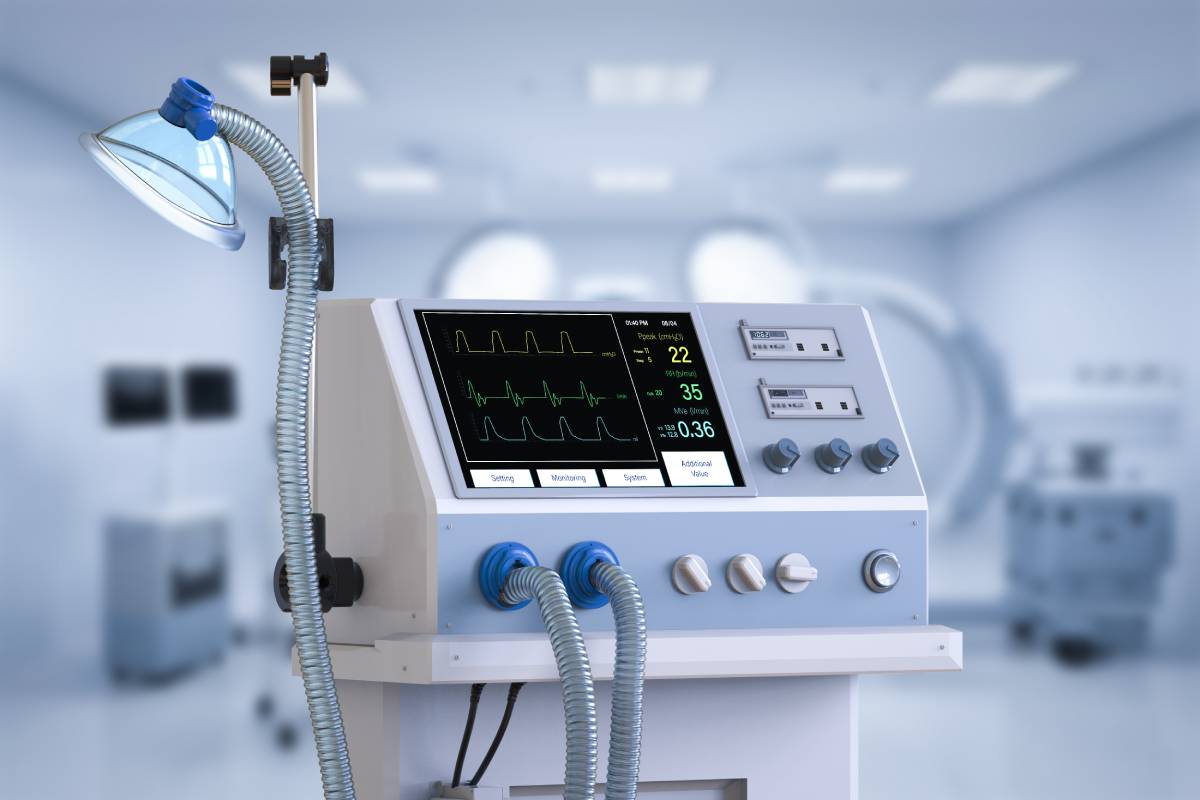Recall for Philips Mechanical Ventilators

In June 2021, the Dutch electronics corporation, Philips, issued a recall of thousands of its ventilators [1]. The recalled devices included BiPAP and CPAP machines of the kind used to address sleep apnea [1]. The initial recall has since expanded to encompass more than 5.5 million Philips mechanical ventilators worldwide because of the additional February 2022 recall of its V6, V60 Plus, and V680 ventilators [2, 3]. With the use of millions of machines now thrown into jeopardy, the medical care of many patients worldwide has been disrupted.
The first recall of Philips mechanical ventilators was caused by the finding that patients could swallow or inhale debris while using them [4]. This recall implicated both continuous and non-continuous ventilators that carry polyester-based polyurethane foam [4]. The foam was initially included in these products to minimize vibrations and sound [4]. Unfortunately, it can erode over time, resulting in loose particulates floating in the ventilator and making their way into patients’ airways [4].
The risks associated with this debris consumption are manifold. Not only may patients suffer from irritation of the respiratory tract, eyes, or skin, but they may also experience nausea, asthma, internal organ damage, and other conditions, such as cancer, that develop following exposure to toxic carcinogens [4, 5]. This recall was motivated by the FDA’s receipt of over 21,000 medical device reports (MDRs) that detailed how foam breakdown has ostensibly contributed to a wide array of injuries among patients using Philips ventilators [5]. Among these 21,000 MDRs were 124 reports of death [5]. Although these reports are not without their methodological limitations, they underscore the urgency with which providers and patients must become aware of the danger associated with these devices and change the course of treatment if necessary [5].
Following the June 2021 recall, another more recent alert was issued by Philips in 2022 [3]. This recall concerns its V60, V60 Plus, and V680 ventilators, of which, in total, there are more than 99,000 machines in circulation worldwide [3]. The issue with these ventilators does not concern the infiltration of debris into the patient’s airway; rather, they suffer from an internal electrical circuit malfunction that may cause the ventilators to stop working altogether, possibly without alerting healthcare providers [3]. It is estimated that this error could lead to about one silent shutdown in every one million uses per year [3].
To address these issues, Philips has begun repairing some of its machines and issuing guidelines for providers, patients, and caretakers to follow. In September 2021, the company began repairing its first-generation DreamStation devices [1]. Additionally, some of the DreamStations have been replaced by newer versions that do not suffer from the foam erosion that makes the recalled models so dangerous [1]. Philips anticipates completing the repair and replacement of its first set of recalled machines by September 2022 [1].
As for the V60, V60 Plus, and V680 ventilators, providers do not have to completely stop using their affected devices [3]. Instead, they can install a remote alarm system or an oxygen analyzer or monitor, or simply read patients’ pulse oximetry levels regularly to ensure that they swiftly note any disconnection of the ventilation system [3].
Along with these more device-specific recommendations, the FDA also urges owners of Philips mechanical ventilators to register their machines by visiting Philips’ recall website or calling 1 (877)-907-7508 [5]. Furthermore, any health issues that one suspects may have been caused by the implicated ventilators should be reported through the MedWatch Voluntary Reporting Form [5]. By taking these steps, patients and providers can provide the FDA with helpful data and thus facilitate the recall process.
References
[1] A. Kassraie, “Philips Begins Repair, Replacement of Recalled Sleep Apnea Machines,” AARP, Updated September 2, 2021. [Online]. Available: https://www.aarp.org/health/conditions-treatments/info-2021/cpap-recalls.html.
[2] “Philips shares slide as supply chain woes, ventilator issues persist,” Reuters, Updated April 25, 2022. [Online]. Available: https://www.reuters.com/business/philips-q1-core-profit-plunges-supply-chain-problems-continue-2022-04-25/.
[3] A. Park, “Philips plies on another trio of Class I recalls for beleaguered ventilator portfolio,” Fierce Biotech, Updated April 19, 2022. [Online]. Available: https://www.fiercebiotech.com/medtech/philips-piles-another-trio-class-i-recalls-beleaguered-ventilator-portfolio.
[4] A. Park, “FDA dishes out Class I label to Philips’ recall of faulty CPAP machines and other ventilators,” Fierce Biotech, Updated July 23, 2021. [Online]. Available: https://www.fiercebiotech.com/medtech/fda-dishes-out-class-i-label-to-philips-recall-faulty-cpap-machines-and-other-ventilators.
[5] “Update: Certain Philips Respironics Ventilators, BiPAP Machines, and CPAP Machines Recalled Due to Potential Health Risks: FDA Safety Communication,” FDA, Updated May 19, 2022. [Online]. Available: https://www.fda.gov/medical-devices/safety-communications/update-certain-philips-respironics-ventilators-bipap-machines-and-cpap-machines-recalled-due.
